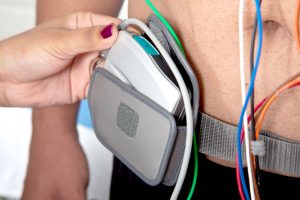 Bradycardia is a condition in which the heart rate is slow. A normal heart rate is between 60 to 80 beats per minute, so anything below 60 is considered bradycardia. There are many reasons why a person’s heartbeat may run fast or slow. For example, adults who regularly exercise will have a slower resting heartbeat. Seniors are typically prone to have a slower heartbeat, as aging causes the heart muscles to weaken.
Bradycardia is a condition in which the heart rate is slow. A normal heart rate is between 60 to 80 beats per minute, so anything below 60 is considered bradycardia. There are many reasons why a person’s heartbeat may run fast or slow. For example, adults who regularly exercise will have a slower resting heartbeat. Seniors are typically prone to have a slower heartbeat, as aging causes the heart muscles to weaken.
Although these reasons are harmless, bradycardia could also signify a more serious condition. If the heart cannot pump a sufficient amount of blood, symptoms and complications may arise.
Types of bradycardia
Advertisement
There are five main types of bradycardia: sinus bradycardia, sinus pause bradycardia, sick sinus syndrome, tachy-brady syndrome, and heart block.
Sinus bradycardia is when the heart rate is below 60 beats per minute (BPM). It is often seen in athletic, healthy individuals. This type of bradycardia doesn’t usually cause any complications, unless heart rate is below 40 BPM.
Sinus pause is when the heart misses one or two beats because the natural pacemaker fails to activate the electrical system throughout the rest of the heart.
Sick sinus syndrome is when various irregular heart rates occur due to malfunctioning of the heart’s natural pacemaker. People with this condition may have a combination of slow and fast arrhythmias.
Tachy-brady syndrome is when the heart beats too quickly and then beats too slow. This type of bradycardia is often seen in people with atrial fibrillation, and can occur when the heart’s pacemaker is damaged.
Heart block is an abnormality in the way electricity passes through the heart’s electrical pathways. The electrical pulse is blocked from continuing through the pathways, causing a slow heart rate.
Bradycardia prevention, treatment, and home remedies
 Treatment of bradycardia depends on the root cause. For example, if hypertension is the cause of bradycardia, the doctor may prescribe medications and create a treatment plan for the patient to lower their blood pressure.
Treatment of bradycardia depends on the root cause. For example, if hypertension is the cause of bradycardia, the doctor may prescribe medications and create a treatment plan for the patient to lower their blood pressure.
Advertisement
A pacemaker may also be an option. A pacemaker is a device that replicates what your heart naturally does on its own. It creates the electrical signals needed to create a heartbeat.
Prevention of bradycardia consists of healthy lifestyle habits. Here’s what you can do:
- Exercise and eat well
- Don’t smoke
- Limit alcohol
- Don’t abuse drugs
- Maintain a healthy weight
- Control other medical conditions
- Control stress
- Visit your doctor for regular check-ups.
If you already have a heart condition and your doctor has you on a therapy plan, ensure you are taking medications properly and following any other suggestions the doctor may have laid out for you.
